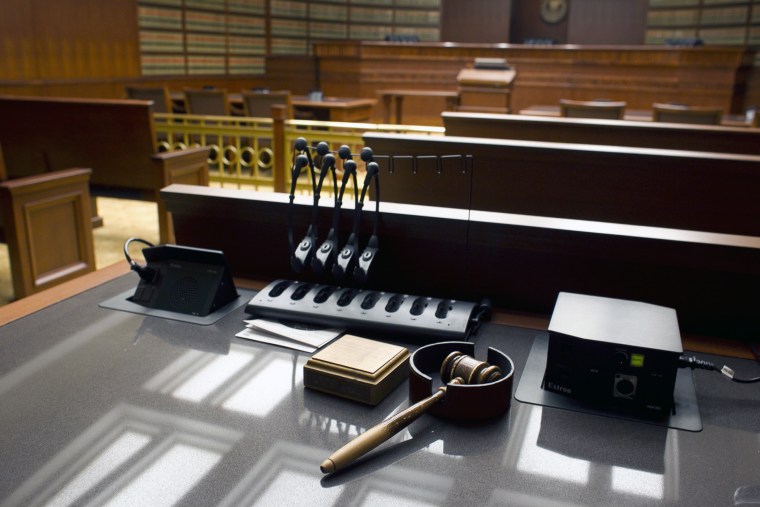Last week, House Oversight Committee Chairman Elijah Cummings (D-Md.) issued a subpoena to Mazars USA, directing the firm to turn over Donald Trump's financial records. The president's new lawyers -- hired to keep the Republican's finances secret -- initially sent a letter to Mazars USA, insisting that the firm ignore that federal subpoena.
Yesterday, Trump's attorneys kicked things up a notch, suing Cummings, asking a federal court to block the congressman's oversight efforts. As Rachel noted on the show last night, the lawsuit will almost certainly fail.
But the Washington Post highlighted an interesting tidbit from the lawsuit, which I'd overlooked after initially reading the filing.
In Trump's lawsuit, his attorneys cited a Supreme Court decision called Kilbourn v. Thompson, which found "no express power" in the Constitution for Congress to investigate individuals without pending legislation.The problem with that argument, said University of Baltimore law professor Charles Tiefer, is that Kilbourn v. Thompson is a case from 1880.And it was overruled by a decision in 1927, Tiefer said.
"By reaching back to precedent to the 1880s, they're seeking ... to overturn the entire modern case law that the courts have put together to respect Congress's investigative power," Tiefer added, referring to Trump's lawyers. "It's a very long shot.... These suits look like an act of desperation by the Trump lawyers."
It's obviously embarrassing if the president's new legal team didn't realize it was citing a Supreme Court case that was overturned nearly a century ago, but let's not brush past too quickly the absurdity of the underlying argument.
Trump's lawyers effectively made the case, in an official court filing, that Congress can only conduct oversight in pursuit of legislative ends. If that were true, any effort on the part of lawmakers to scrutinize any controversy outside of legislative pursuits would be legally impermissible.
So to recap, the president expects the courts to (a) stop lawmakers from scrutinizing his past, and (b) drastically limit the scope of congressional oversight.
That's obviously a tough posture to defend, but just as importantly, it raises anew questions about what it is Trump and his team are so desperate to hide.
